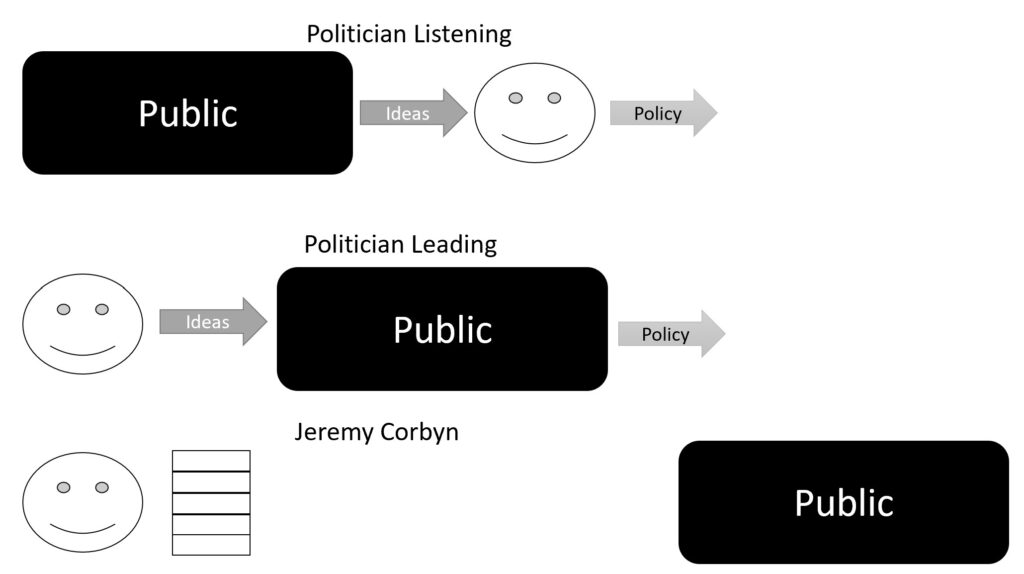One of the most interesting problems in marketing is how much to listen to consumers. There are certainly challenges with listening to consumers. Sometimes it is probably fair to say that consumers don’t have a great idea what they want. That said, in for profit businesses there rarely is a good reason to ignore consumers’ wishes. If the consumers want you to lighten the shade of blue you use on the product then why not? (There may be some situations where you might not want to give consumers what they want — e.g., you might feel an obligation to offer consumers a healthier option than they want — but this is pretty rare. Most marketers seem comfortable selling unhealthy things to consumers). So the right balance between listening and leadership can be relatively easy to strike.
How Much Should You Listen In Politics?
In politics things start to become a lot more complicated. There are often good reasons for a politician to not want to give the voters what they want.
Even if you assume that the voters know what they want, the voters might demand something that the politician thinks is unethical. Even if the demands aren’t unethical per se the politician, presumably, went into politics because they have a perspective on what needs to be done. They, mostly, aren’t just there merely to execute the voters’ whims. The politician will be keen to try and lead the voters to something “better”. The politician, hopefully, wants to change the world in what they see as a positive way. (Imagine if the British Labour Party had a leader who a) believed in Europe and b) was willing to risk unpopularity to defend it; maybe the country wouldn’t be facing the mess of Brexit. Written in 2017 when Jeremy Corbyn was leader (sic) of the Labour Party)

Listening Versus Leadership
This tension between trying to persuade the voters to follow what the politician thinks is best and responding to the wishes of the voters can be termed the ‘listening versus leadership’ tension. Edward Elder has charted how a couple of major politicians (Barack Obama in the US and John Key in New Zealand) attempted to lead whilst in government. They had to decide when to give in and change their plans and when to try and persuade the public. He explains the basic problem: “the public wants governing leaders to lead while also being responsive to their criticisms, concerns and overall demands” (Elder, 2016, page 2).
It is hard to know when a leader gets the balance right. Part of the problem is that we judge this subjectively. To be honest the balance is probably right from my perspective when the politician leads in a direction that I agree with.
Read: Edward Elder (2016) Marketing Leadership In Government: Communicating Responsiveness, Leadership, and Credibility, Palgrave Pivot
